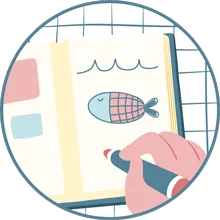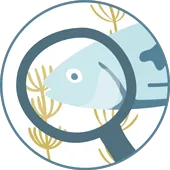
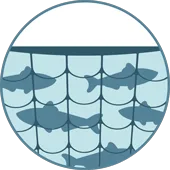

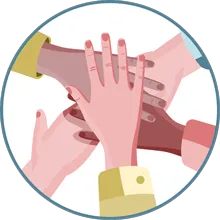
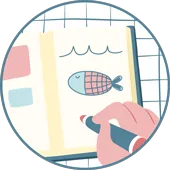
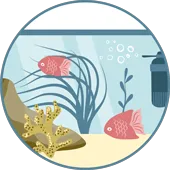
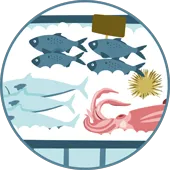
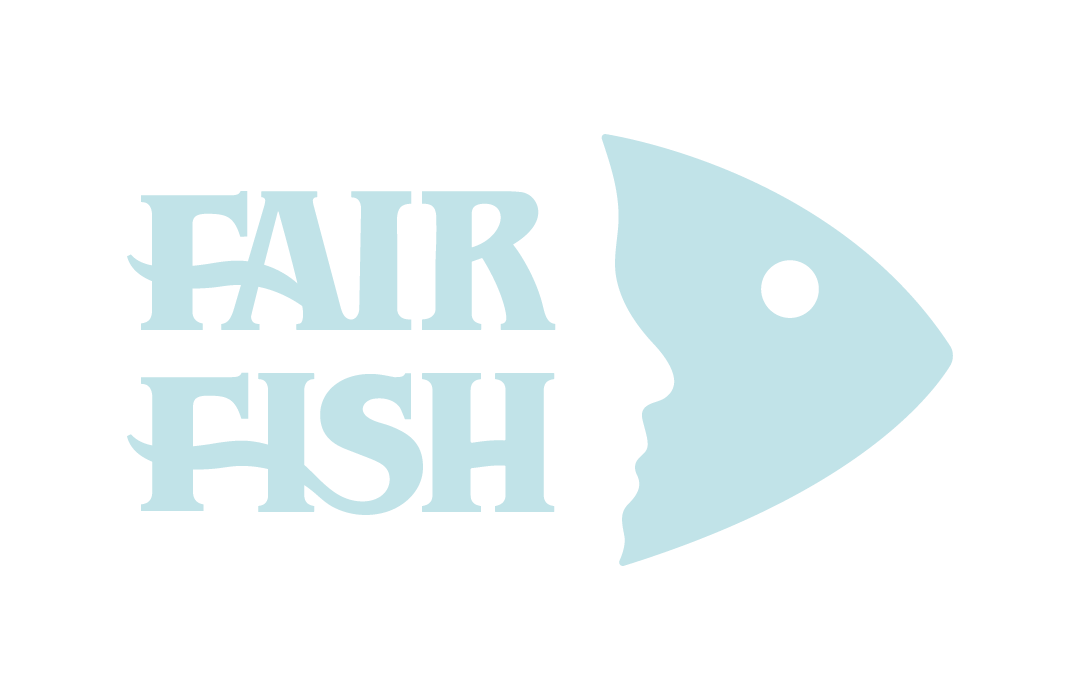
We want children to feel and experience the sea so that they want to take responsibility themselves and treat the marine habitat as well as the fishes and other creatures with goodwill and respect.
With a suitcase full of silver cardboard fishes, a blue cloth sea, and great game ideas, we get school children excited about the ocean. The children put on imaginary diving goggles and see colourful fishes swimming across a large screen, corals swaying in the water, and tuna chasing schools of fishes.
The children then empathise with sea turtles, look through prepared goggles, and decide whether what they see is jellyfishes (food) or plastic bags. They feel, understand, and are affected: So many turtles die because they eat plastic – they simply cannot see the difference between jellyfishes and plastic bags.
The children are then given drawn boats and fishing gear, and over 150 cardboard fishes cavort in the blue sea unfolded on the floor of the room. The children roll the dice and fish, and soon there are almost no fishes left in the sea. The children realise: „We're overfishing!“. Counting the catches reveals a huge imbalance between trawlers and smaller boats. Short video sequences show what they have just experienced from another perspective: Why is a bottom trawl so damaging to the seabed? Why are longlines a deadly danger for seabirds?
And... „what do we do now?“ Together, children develop solutions such as: eating less fish, eating better caught fish, taking the fair‑fish test, creating less waste. The children also learn what they can glean from the information on fish packaging about animal suffering, bycatch, or seabed destruction.
The school project has been met with curiosity, interest, and enthusiasm. The feedback from the classes and teachers is extremely positive and motivating.
The lessons are free of charge. Teachers in Switzerland are welcome to contact us if they are interested!
teacher fair‑fish marine school
Mail: sarah...
HomePublicationsThank you!Summer ShoalTeamfair-fish bookSocial mediaConsumptionDonateAssociationEventsData privacyOnline ShoalImprintfair-fish Marine schoolConsultancyWhich labels?Bequestfair tradePartnersArchiveAquaristicsJobs/InternshipsHistory & VisionCarefish/catchFisheryCarefish/farmFarmingfair-fish databaseImprintData privacyNewsTeamDid you know...?fish-factsAnnual reportsNewsletterMessagefish-facts SubscriptionInstagramFacebookTwitter / XLinkedIn

